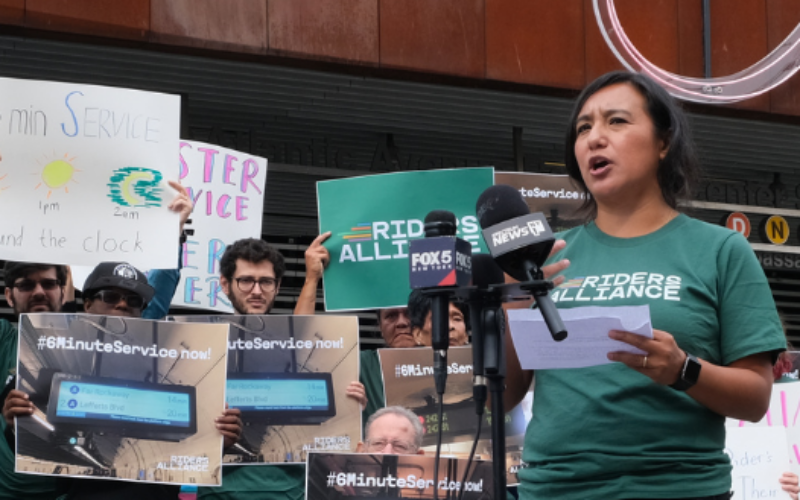

The MTA and its agencies receive nearly 9,000 public information requests a year, and there is widespread public dissatisfaction among journalists, watchdog groups and the broader public about how long it takes the MTA to fulfill requests. In October, fourteen good government and transit groups marshaled by Reinvent Albany called for the New York’s Metropolitan Transportation Authority to overhaul its freedom of information law (FOIL) processes, stating that the “MTA’s FOIL process is fragmented between its agencies, at times still paper-based, and lags significantly behind the best practices of other government agencies in New York and nationally.” The letter from the groups pointed to findings by a recent Reinvent Albany report on the subject.
The call for reform highlights superior practice at the Port Authority of NY and NJ, which modernized its FOI process in 2012 and created a web portal for requests. Pat Foye, then the Port Authority’s Executive Director and currently the MTA’s President, explained the reasoning behind the changes:
“The new FOI Code streamlines, modernizes, and clarifies an out-of-date system that was clearly not meeting the public’s needs. By holding ourselves to a higher standard of transparency and by voluntarily posting online thousands of documents now, we make the agency a stronger and more accountable institution.”
The Port Authority’s approach includes proactively putting public records online, and the searchability of fulfilled records requests. The Port Authority also has a standardized response form that makes it very clear to the public the reasons why records may not be immediately available, and the category under which a request falls.
While developing the report, Reinvent Albany tested the MTA system by requesting FOIL logs listing Freedom of Information Requests received by each MTA sub-agency. MTA Bus never acknowledged receipt of the request. NYC Transit sent a hard copy letter to acknowledge the FOIL request, while all other agencies sent email responses. To have its request fulfilled, Reinvent Albany had to submit an administrative appeal to all eight MTA agencies. Ultimately, they took between 52 and 64 business days to send the FOIL logs, well beyond the 20 business days required under FOIL for responses for simple records requests.
The groups called on MTA to:
- Adopt an Open FOIL platform for requests
- Create an in-house portal for requesting MTA police incident records
- Use Open FOIL best practices from other jurisdictions
The work Reinvent Albany is doing on MTA governance is producing valuable general templates and lessons for anyone looking at the functions and institutional settings of a transit agency board of directors. Be sure to also check out TransitCenter’s brief report highlighting best practices for achieving transit agency transparency.
 On the Brink: Will WMATA’s Progress Be Erased by 2024?
On the Brink: Will WMATA’s Progress Be Erased by 2024?
The experience of being a WMATA rider has substantially improved over the last 18 months, thanks to changes the agency has made like adding off-peak service and simplifying fares. Things are about to get even better with the launch of all-door boarding later this fall, overnight bus service on some lines starting in December, and an ambitious plan to redesign the Metrobus network. But all of this could go away by July 1, 2024.
Read More Built to Win: Riders Alliance Campaign Secures Funding for More Frequent Subway Service
Built to Win: Riders Alliance Campaign Secures Funding for More Frequent Subway Service
Thanks to Riders' Alliance successful #6MinuteService campaign, New York City subway riders will enjoy more frequent service on nights and weekends, starting this summer. In this post, we chronicle the group's winning strategies and tactics.
Read More